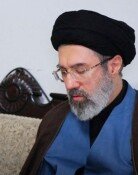[Editorial] Diplomatic Approach to IAEA on Nuclear Experiments Should be Done Correctly
[Editorial] Diplomatic Approach to IAEA on Nuclear Experiments Should be Done Correctly
Posted November. 12, 2004 23:09,
The International Atomic Energy Agency (IAEA) has drawn up a report regarding South Korean nuclear experiments and distributed the report to its 35-member countries of the board of governors. If it goes unchecked, the matter will be concluded in a November 25 meeting of the IAEA board of governors or referred to a U.N. Security Council meeting. Since the Korean government has complied with three rounds of IAEA inspections, I hope that the IAEA came up with an impartial report based on true findings.
However, it is still premature to assume the IAEA decision. John Bolton, the U.S. under secretary for Arms Control and International Security who is leading the IAEA activities, reportedly revealed his opinion not only to Seoul but also to Tokyo, insisting, It is proper to refer the matter to a U.N. Security Council meeting in order to address the problem clearly. Deputy Chief of the National Security Council Lee Jong-seok anticipated, It is likely that the situation will go badly for Korea after the meeting with Mr. Bolton. Another matter of concern is that some foreign news reports have claimed that the experiments produced weapons grade nuclear materials or materials that were close to weapons grade.
In fact, it is unacceptable for Korean nuclear experiments to be dealt with equally as the experiments that North Korea and Iran have conducted in fear of the two countries reactions. South Koreas experiments that produced minute amounts of enriched uranium cannot be handled in the same way as North Korea and Irans ambitions to develop nuclear weapons. Seoul revealed that the IAEA report found Koreas mistake to be failure to report rather than non-compliance of the Nuclear Safeguard Agreement, whose terms are completely different.
If the governments original explanation that it was confined to laboratory experiments had been acceptable to the IAEA, the situation would not have been this difficult. If the talks with the U.S. delegation had been successful, Mr. Bolton would not have insisted on sending the matter to a U.N. Security Council meeting.
The government should do its utmost to bring a favorable conclusion to this matter within the next two weeks. If Seoul is unable to persuade its allies, its explanation to the public that the matter would not cause a big trouble could become a lie. How could it handle accusations from the international community and unfavorable effects on six-way talks if the issue goes to the U.N. Security Council?







